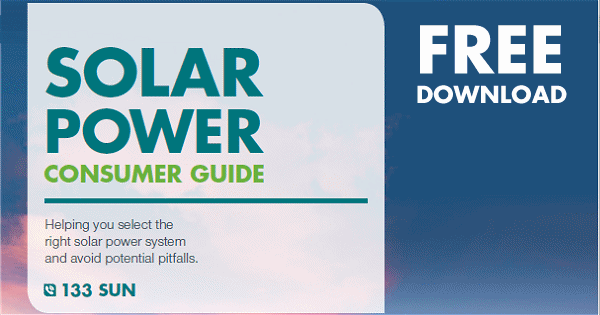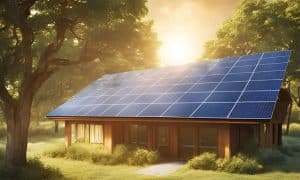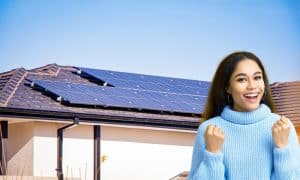Getting your electricity bill is hardly going to be the highlight of your month, but if you just installed a shiny new solar system then there’s an understandable level of anticipation. How much have you saved? How does it compare to your previous bills?
On this page:

While the majority of solar newcomers will see a favourable impact on their very first bill, others may be shocked or disappointed. You may be asking yourself “why are my energy bills still high after getting solar?” In this post, we’ll look at the three most common reasons why your energy bill remains high after putting house house solar panels on your roof and our best advice on how to resolve them. You deserve to get the most out of your solar investment and these tips should help you maximise your potential savings.
Reason 1: You are using most of your electricity at night
If you’re at work during daylight hours, you’ll probably find that your electrical appliances and devices get their heaviest workout after hours when the sun isn’t shining (and your solar isn’t generating electricity). From your oven and dishwasher to your washing machine and televisions – all of this electricity can really add up! Couple this with the fact you’ll likely be running them during peak periods (typically 3pm-9pm), and you’ve got yourself the perfect recipe for a very high electricity bill.
The reality is, if you use most of your energy at night, the majority of your solar will be exported to the grid. While you will still be receiving a feed-in-tariff, exported solar is roughly worth about half of self-consumed solar.
Solution 1: Sync your usage with your solar system
Plan ahead so you can get your household routines in sync with your solar system. The critical thing to remember is that your solar panels are dormant when the sun goes down. This means that in the absence of a solar battery, electricity you use in the evenings will be coming from the grid, not your solar system.
You may have heard the term ‘load-shifting’. This simply means re-adjusting your energy usage so that you consume more electricity during the day. But how, you may ask? Well, it all comes down to two key factors; changing your consumption habits and (your new best buddies) timers.
Some simple ways to load-shift:
- In summer, set your air conditioner on a timer to cool down the house before you get home. Once the house is cool and you want to keep the air circulating, you can switch to less electricity-intensive cooling methods such as fans.
- Do the same in winter with your heating. Time your heater to warm things up during the day before you get home.
- Make use of delay timers on your dishwasher, washing machine and dryer so they are running during the day.
- If you don’t want to set delay timers, save electricity-intensive processes (such as clothes washing and drying) for the weekend when you’re home during the day.
- If you own a pool, install a timer on the pump and filter to work during the day.
- If your hot water is electric, shower in the morning rather than at night.
Solution 2: Install a solar battery
The other, more effective (albeit more expensive) solution would be to install solar battery storage. This will allow you to more than double your electricity self-consumption by enabling you use your self-generated solar power at night or on cloudy days.

Reason 2: You are using more electricity than before
Some new solar customers adopt a misguided mindset around their electricity usage; they think having solar means they can suddenly use as much electricity as they want, whenever they want, and not have to pay for it anymore. This is simply not the case. Solar can offset the daytime energy usage in your home – but if you increase your energy usage and assume solar will offset it all, you’ll probably be unpleasantly surprised by your next energy bill.
Solution: Understand your consumption habits and load shift where possible
Firstly, establish whether this is actually the issue. Grab a copy of two electricity bills – one from before installing solar and a bill from after. Compare the peak and off-peak energy consumption levels between both bills, and see if there are any changes. If you’re consuming more energy in this cycle, it’s likely the reason for the increase in bills.
If you are using more energy, then changing your consumption habits is key. Load shift where you can and be conscious to avoid doing something like running the heater all day and night unless absolutely necessary. If you want to get real-time insights into your electricity usage and really pinpoint opportunities to save money, consider installing a smart meter. Available through your energy provider, a smart meter provides a graphical representation of your energy usage throughout the day and allows you to adjust your usage patterns for better efficiency.
Reason 3: There’s something wrong with your system
What if you are already utilising most of your power during off-peak times and practicing smart consumption habits, but your bills are still higher than expected? If this is the case then there’s a likelihood that your solar panels aren’t functioning correctly for one reason or another. Just a few of the possible reasons include:
- Your system wasn’t sized correctly to meet your daily electricity requirements
- Your system is not appropriate for your location or installed to maximise its potential
- Your system is faulty
Solution: Investigate and correct
There are ways you can calculate whether or not your solar system is producing the expected output based on its size, location and the time of year.
To start, most solar inverters should be able to tell you what your average daily kW output per kW has been over the past 12 months which you can compare against your state’s daily average. Your average should perform to within at least 90% of state averages.
If you’ve had your system for less than 12 months, you can still work it out based on your monthly average. NREL’s PVWatts Calculator is a free resource that can estimate the energy production of grid-connected solar systems for any given month based on your location. The input data can seem a bit complicated at first glance, but each field has a further information icon that explains what it means.
You can, of course, skip this step entirely and call the company that sold you the system. Remember that your panels should be covered by at least a 10 year warranty. A reputable company should be happy to come and check over the system to ensure its functionality and performance. If you would rather get an independent opinion, then contact a local solar electrician who can arrange further inspection and repair work if necessary.
Knowledge is power
Solar is, without doubt, a fantastic way to reduce your reliance on the grid and slash your energy bills. If you aren’t seeing the return on investment you expected, chances are that you aren’t “making hay while the sun shines”. With panels only, you’ll only realise true savings by being conscious of your energy consumption patterns and using the bulk of your electricity during the day. If you install a solar battery and have a large enough system, you can cover most (if not all) of your daytime and night-time energy usage with self-generated electricity!
It’s also possible that you were set up for disappointment. Some solar retailers or salespeople will over-state the savings of solar, or even outright lie. Consumers should see red flags if they are been promised or guaranteed $0 bills, because it is unlikely, especially without a battery installation. A reputable, trusted solar retailer will provide you with a realistic idea of what savings you can expect in your unique circumstances.
Don’t forget, knowledge is power. Whether you are thinking of installing solar or have already made the investment, we recommend downloading our FREE solar consumer guide.

Downloaded more than 26,000 times, this 21 page essential guide will help you with everything you need to know about solar for your home, including how to select the right solar power system in Melbourne, how to avoid potential pitfalls and information on battery storage. Get your free digital copy here.













































